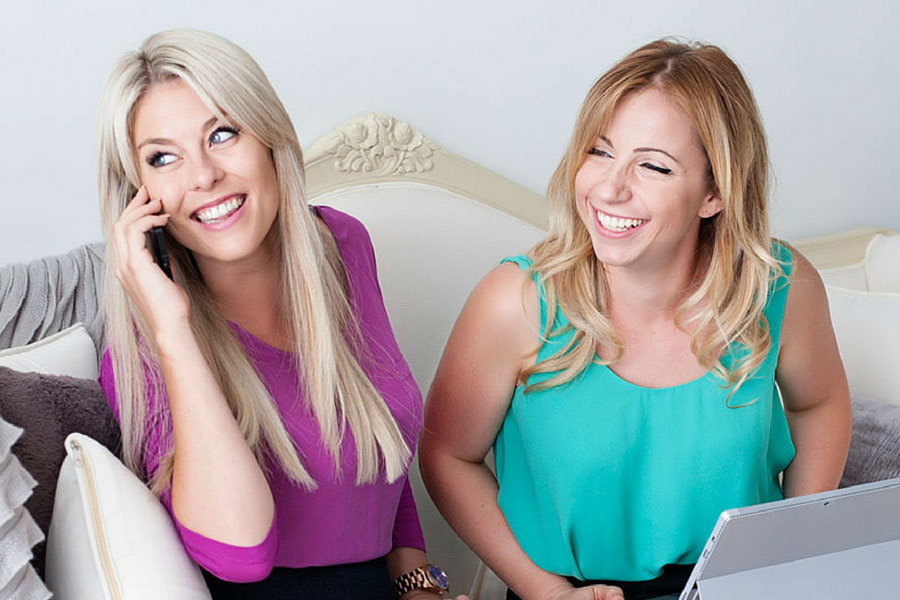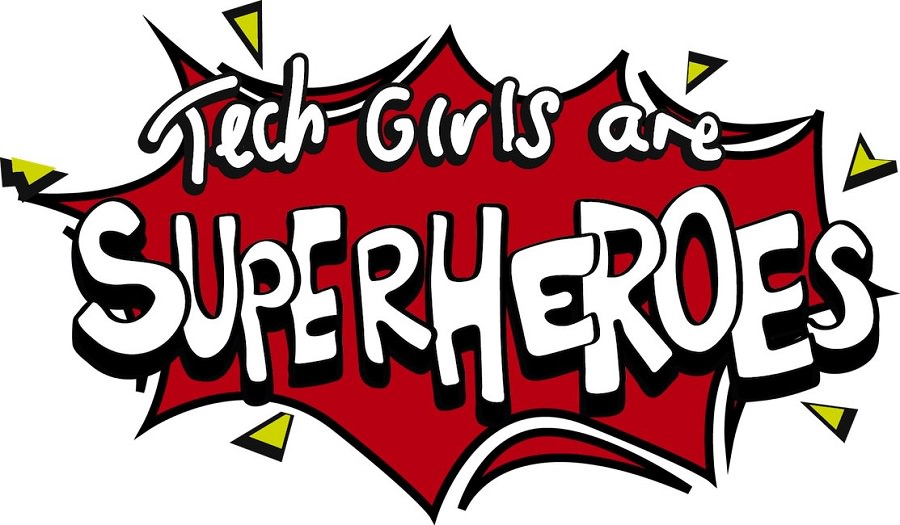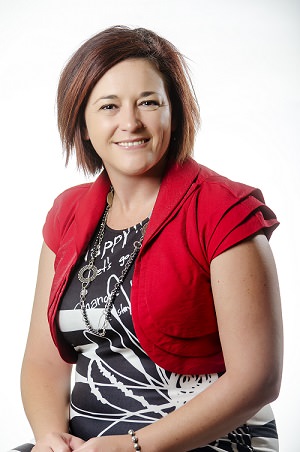Gemma and Valeria are co-founders of Diverse City Careers, a jobs board that advertises positions from Australia’s top companies which provide ideal workplaces for women. Since my first coffee with Gemma and Valeria last year, I’ve seen these ladies go from strength to strength. We’ve been lucky enough to get some time with them to answer some questions about their startup, diversity, enacting change and community, plus a throwback to the school days.

Do you recall the moment when the lightbulb illuminated with the Diverse City Careers (DCC) idea, and why you became so passionate about starting the business?
Gemma: The idea behind DCC came to me after spending 8 years in IT&T and experienced the challenges faced by many women in male dominated industries. Both Valeria and I were also on the board of Females in Technology and Telecommunications (FITT). FITT is a NFP network with over 4,000 members. Through volunteering with FITT, we realised there were so many other women experiencing the same challenges as us. Through the FITT corporate sponsors, we were exposed to companies doing amazing things to support women- such as internal leadership programs, a focus on equal pay and great parental policies. That’s when I thought- why can’t all companies be like this? Essentially that’s where the concept for DCC was born- to only promote the companies doing the right thing. Initially I reached out to Valeria to see if she’d be interested in helping me with some marketing activities but she fell in love with the idea too and the rest is history!
Valeria: My passion for DCC stems from the desire to see more companies focus on outcomes rather than “time spent in office” to enable more inclusive and happy workplaces. Flexibility is one of several key aspects to drive productivity and while not every role can be flex, there are lots of room for improvement in this area across Australian businesses.
I also found myself and other women frustrated with the lack of options to easily find the most supportive employers. Most job boards were either flooded with anonymous, or even worse, fake recruiters’ jobs and others only catered to working mothers.
DCC’s motto is: “We believe in a better way of working”. With that in mind, can you give examples of ideal environments for businesses to work toward?
An ideal working environment consists of a few different things:
- A place where everyone believes in the company’s mission and working towards a common goal
- A place where everyone can be 100% themselves and feel included
- Where there are opportunities to learn and grow, to reach your full potential
- Where you feel empowered to make decisions within your area of expertise, an agile environment that can respond to the market quickly without bureaucracy and politics.
Your start-up is still young, but you’re smashing it from all angles! Can you share three things which have been contributing factors to this rapid rise?
- We are genuinely passionate about what we’re doing and we’ve struck a chord with many others who believe in what we’re achieving
- We’ve developed key industry partnerships to help expand our community through the collective networks of different groups such as Tech Girls Movement and Women in Energy
- For the last 12 months we’ve lived and breathed everything DCC, we’ve worked really hard to achieve this growth- we have sacrificed a lot personally as would most startup founders.
Both of you have a background in tech. What advice do you have for women wanting to get into the tech space, and/or manifest change in their chosen STEM career?
Gemma: There are so many awesome career paths you can take in tech and it’s an incredible field to be in! Many great organisations are hiring for potential rather than experience, so don’t be afraid to go for roles you may not have 100% experience in. With less than 30% of the ICT workforce female, forward thinking organisations are providing great training and professional development opportunities to be able to create a more diverse workforce.
Valeria: Tech has the capability to provide the most flexibility- you can literally do you job anywhere and I’m a prime example of this- prior to DCC, I’ve worked with four different tech companies in a marketing capacity, where I managed activities nationally from Melbourne. Over the years I’ve met brilliant people working in IT, many of whom are not strictly ‘technical’- which breaks the common perception of this industry.
Some people may say that your business is not about diversity; rather, it backs the effort to increase women’s rights in the workplace. What is your response to that?
Gemma: The two go hand in hand- we need to increase women’s rights to ensure there are more diverse, inclusive and equal workforces. Within ICT specifically in the top 3 tiers in management, only 1 in 5 leaders are female. We need to support and increase women into those roles, part of that is enforcing women’s rights such as equal pay, better parental leave policies and mentor programs.
Valeria: The policy changes we are influencing are all about inclusivity. Let’s take one aspect for example; parental leave policies. Our vision is to see companies abandon the ‘maternity leave’ policies in favour of parental leave where males and females can have access to the same entitlements. Our clients do not just focus on ‘women’s rights’ but creating an overall inclusive culture. However there is lots of work to be done to change the image of some companies being strictly a ‘boys’ club’ which is where using images of women at work in job ads and sharing their stories comes in.
I would imagine the community aspect plays a big role when engaging with a business. How much of what you do is about advocating change, and does community play a role in that?
It’s a huge part of our business and why we do what we do- with only 10% of computer science graduates in Australia female, we need to make sure we’re building the pipeline of women coming through. A good example of this is our partnership with Tech Girls are Superheroes and our “Superhero Daughter Day”. Held at the Microsoft Innovation Centre in Brisbane during International Women’s Day week, we had 120 girls as young as four years old through to 13 attend with their parents to celebrate technology and even have a go at coding!
We are very focused on sharing the positive changes in the industry as well- whether this be through a digital campaigns such as the IWD Pledge for Parity or events with our corporate clients and partners. These include facilitating panel discussions around how companies are getting creative in solving barriers to gender equality along with donating our time to speak at external events. The media has also been very supportive through sharing the news of our initiatives.
Do you have any tips for community managers to consider when pitching to management about adding or updating policies about balanced diversities?
There are countless studies that demonstrate how more diverse organisations are more profitable, productive and have a lower turnover of staff. I’d definitely be using these! Plus demonstrate industry leading practices at other organisations. On the DCC website, we profile organisations under the Companies we Endorse page to showcase some of the great things companies do to support women.
In 25 words or less, why would you love to check out Silicon Valley?
Because it’s the worlds hub for tech start-ups. It’s filled with highly successful entrepreneurs, investors and home to the most successful companies like Apple and Google- you would meet some truly inspiring people and learn a lot!
Windows or MacOS?
Gemma: Windows desktop, but iOS phone
Valeria: Windows desktop and Android phone
Here’s a throw-back to primary school! What was your best school project and why?
Gemma: I don’t remember much from primary school so had to call my mum for this one! She said my favourite project was when we went to Egypt and Israel on holiday. At school I created a big collage of my trip and the history of those countries, like the pyramids. I was creative during primary school which is why I enjoyed this project.
For high school, in year 12 I was part of “Business Week”. In groups, we had to design, market and simulate the growth of a hotel which then competed against other groups in our year. I’ve always had an urge to run my own business so I loved this project!
Valeria: In primary school, my obsession with the NBA and in particular Michael Jordan meant that each and every project had to be directly related to basketball. This included a maths game which was based around players’ jersey numbers, a felt collage for art consisting of the 1992 Dream Team and when it came to picking a country for a geography project, I had no hesitation in choosing Jordan. All projects drove my teachers mad but I was extremely proud of my commitment to basketball and my ‘unique’ creations.
Feel free to connect with Gemma or Valeria via LinkedIn. You can also check out DCC online via web, Twitter, LinkedIn, or Instagram.





 Dr Jenine Beekhuyzen first started encouraging girls to get into IT with a book called
Dr Jenine Beekhuyzen first started encouraging girls to get into IT with a book called